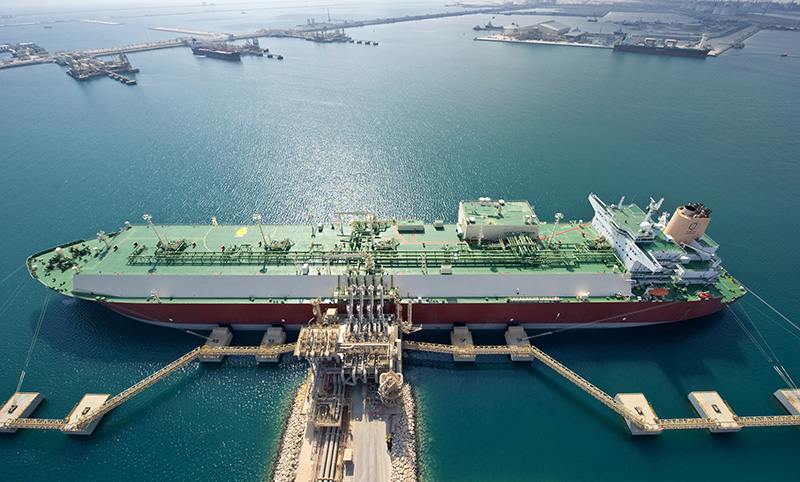State-run QatarEnergy has ordered six LNG carriers at two South Korean yards, as part of its massive shipbuilding program revealed earlier this year.
Under the new order, Daewoo Shipbuilding & Marine Engineering (DSME) would build four LNG carriers while Samsung Heavy Industries (SHI) would build two, QatarEnergy said on Sunday.
The firm declared options with the two Korean shipyards under its ship capacity reservation agreements signed in May 2020.
LNG producing giant QatarEnergy signed deals then with South Korea’s biggest three shipbuilders to secure more than 100 vessels worth about $19.2 billion.
The new carriers will cater for future LNG fleet requirements for Qatar’s North Field expansion projects as well as for existing vessel replacement requirements.
QatarEnergy recently ordered four 174,000-cbm LNG carriers from China’s Hudong-Zhonghua, as part of this huge shipbuilding program as well.
This puts the total for the first batch of LNG carriers to ten vessels.
QatarEnergy did not reveal the price tag for these Korean vessels, but it said in the previous announcement is would pay about $192 million per ship for the Hudong vessels.
More orders to follow
Qatar’s energy minister and chief executive of QatarEnergy, Saad Sherida Al-Kaabi, welcomed this “further step with DSME and SHI, which have built 23 Q-Flex and 14 Q-Max LNG vessels for Qatar as part of our previous LNG expansion project.”
“These orders, and those that will follow in the near future, constitute a significant part of our program to expand Qatar’s LNG fleet to meet the requirements of our LNG expansion projects, our existing fleet replacement, as well as our LNG trading arm,” he said.
The new orders come after QatarEnergy announced a final investment decision on its $28.75 billion North Field East project earlier this year.
Under the project, QatarEnergy will build four mega trains with a capacity of 8 million tonnes per year in the Ras Laffan complex.
This first phase of the expansion project will increase Qatar’s LNG production capacity from 77 to 110 mtpa.
QatarEnergy also plans a second phase to further boost capacity to total 126 mtpa by 2027, as well as additional expansions.
The company’s unit Qatargas already operates in total fourteen LNG trains at Ras Laffan.

